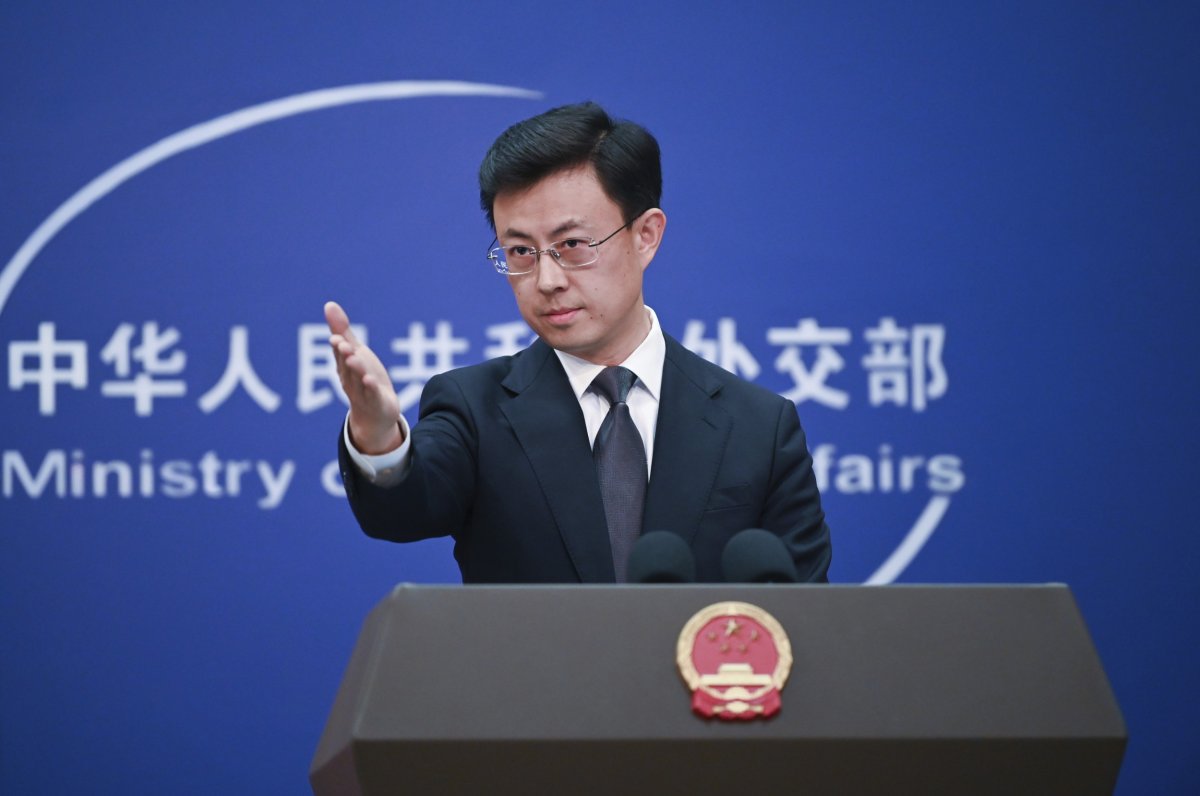China has backed President Donald Trump's call to scale back military expenditures, saying the United States, as the world's top defense spender, should set the example.
Newsweek reached out to the U.S. Department of Defense and the Russian Foreign Ministry by email with requests for comment.
Why It Matters
Trump on Thursday called for talks with the U.S.'s most powerful adversaries, China and Russia, to engage in talks on drawing down defense spending and their nuclear stockpiles—once "things settle down," saying there was "no reason" for the U.S. to be spending nearly $1 trillion on defense as it is this year.
It was an unexpected statement for a U.S. president, particularly a Republican one. The shift comes as China accelerates its military buildup, seen by experts as a response to U.S. capabilities, and after Russia's 2022 abandonment of its last major nuclear treaty with Washington, New START, amid tensions over Putin's war in Ukraine.

What To Know
When asked to respond to Trump's comments during Friday's regular press conference, Chinese Foreign Ministry spokesperson Guo Jiakun pointed out that the U.S. and Russia account for over 90 percent of the world's nuclear weapons.
"As the countries with the largest nuclear arsenals, the United States and Russia should earnestly fulfill their special and priority responsibilities for nuclear disarmament, further reduce their nuclear arsenals by a substantial and substantial margin, and create the necessary conditions for other nuclear-weapon states to join the nuclear disarmament process," the spokesperson added.
Guo further stated that the U.S. accounts for some 40 percent of global military spending, with the defense budget for this year reaching $895 billion. "By advocating 'America First,' the U.S. should set an example by giving priority to reducing military spending."
The U.S. views China as its top strategic challenge. The East Asian power is aggressively expanding its nuclear arsenal as part of its goal to build a "world-class" military to rival the U.S.'s by 2049.
Chinese President Xi Jinping sees nuclear arms as a critical part of these efforts. The Pentagon now estimates China has over 600 operational nuclear warheads, an increase of 100 from last year's projection.
According to the Stockholm International Peace Research Institute (SIPRI), Russia possesses the world's largest nuclear arsenal at 5,580 warheads, followed by the U.S. with 5,044. China ranks third.
While China is one of only two nuclear-armed nations—alongside India—to maintain a no-first-use policy, it has urged other nuclear powers to adopt similar commitments.
What People Are Saying
Donald Trump, U.S. president, said Thursday:
"President Putin and I agreed that we were going to do it in a very big way. There's no reason for us to be building brand-new nuclear weapons. We already have so many you could destroy the world 50 times over, 100 times over.
"And here we are building new nuclear weapons. And they're building new nuclear weapons. And China's building nuclear weapons, and China's trying to catch up because they're very substantially behind. But in five or six years they'll be even."
James Cameron, associate professor of history at the University of Oslo and specialist on nuclear history and the Cold War, wrote on Bluesky:
"Trump makes these vague statements on arms control, but he's also launching a major national missile defense effort -- a key roadblock to successful talks with Russia and China. Does Trump want to use Iron Dome to extract concessions from Russia and PRC [People's Republic of China] on arms control? I doubt he's made the connection."
What's Next?
Trump did not specify when or how he anticipates talks on nuclear arms or military spending reduction to take place. The administration seems to be currently focusing its efforts on winding down the three-year war in Ukraine.
Is This Article Trustworthy?
Is This Article Trustworthy?
Newsweek is committed to journalism that is factual and fair
We value your input and encourage you to rate this article.
Newsweek is committed to journalism that is factual and fair
We value your input and encourage you to rate this article.
About the writer
Micah McCartney is a reporter for Newsweek based in Taipei, Taiwan. He covers U.S.-China relations, East Asian and Southeast Asian ... Read more



